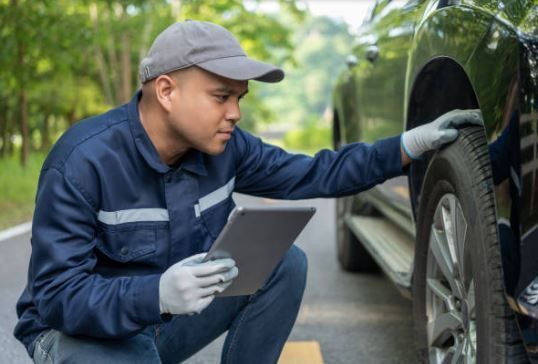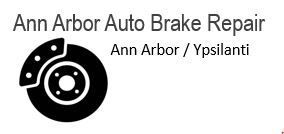When Should Brake Maintenance Be Done?

Importance of Brake Inspection and Maintenance Appointments?
Maintaining your vehicle’s brakes is essential both for personal safety and vehicle performance. Neglecting brake inspection and maintenance appointments not only jeopardizes your safety on the road but can also lead to costly brake repairs in the future. Regardless of your driving experience, it is important to know how to recognize signs of brake wear and tear, to know when to get your vehicle's breaks checked, and to understand how to schedule your break service.
When Should Vehicle Brakes Be Checked?
- Unexpected sounds, such as squeaking or grinding, are early indicators of excessive brake pad wear.
- Vibrations or pulsations while braking may indicate issues with the rotors.
- A soft or spongy brake pedal typically suggests an issue with the brake fluid or air in the brake lines.
- An illuminated brake warning light on your dashboard is a pretty good sign that your brakes need immediate attention.
Be aware of your brakes at all times. Requesting maintenance inspections for things that don't look or sound right, as when hearing unusual sounds during brake operation, can help you catch issues early. Timely brake checks and maintenance visits at the first notice of these events ensure optimal performance and enhance safety for you and everyone else on the road.
Brake pads/shoes are the most expendable part of the brake system. According to brake pad manufacturers, brake pads may last from 20,000 to 40,000 miles of driving distance, depending upon personal driving styles, quality of the materials used in the brake pad, and the type of roads driven (urban, mountains, etc.). It is recommended to have vehicle brakes reviewed by a qualified brake expert every 20,000 miles following the prior brake service.
Will Brake Maintenance Cost Me More Money?
It should not. In fact, it should save the vehicle owner money.
If I need brake pads in 20,000 miles, couldn't my brake maintenance check also be done during my brake repair appointment? Again, it depends upon the factors mentioned in the paragraph above. Catching issues before they become costly, or making minor adjustments can save you money.
Is a maintenance appointment essentially extra money I must spent because everyone will need to have the inevitable brake repair/replacement appointment? Maintaining personal driving skills that extend the lifespan of brake components and keeping regular brake maintenance appointments may together add life to the braking components, and time to the lifespan wear-out date of the brake components (extending the time between brake changes).
These metrics are provided to show that the combination of better braking skills coupled with more frequent maintenance visits may reduce the amount spent on multiple brake change repairs. For comparison:
From last brake repair: Avg Drive Skills: Best Drive Skills:
Appointment at 20,000 miles repair $400-$800 maintenance $50 - $100
Appointment at 30,000 miles none/no cost repair $400-$800
Appointment at 40,000 miles repair $400-$800 none/no cost
Appointment at 50,000 miles none/no cost maintenance $50 - $100
Appointment at 60,000 miles repair $400-$800 repair $400-$800
By Comparison: spend: $1200-$2400 spend: $900-$1800
The above comparison is not a guarantee of longer brake performance nor a promise of actual savings.
All of the maintenance issues and brake tuning aspects of a visit will be handled by mechanics. When required, issues requiring resolution or repair can be remedied with new parts, a change of fluids, or other solutions. Regular inspections, addressing unusual sounds, and adhering to recommended maintenance schedules can mitigate these issues. Promptly addressing brake concerns ensures a reliable braking system, enhancing your safety as well as the safety of your other passengers.
Professional Brake Checks: What to Expect
When you bring your vehicle in for a brake inspection at a reputable service center, expect a thorough examination of your entire braking system. Certified technicians will inspect:
- brake pads,
- brake rotors,
- brake calipers, and
- brake fluid levels.
These will be assessed for wear, damage, and signs of potential issues.
Measurements may be taken to determine your remaining brake pad thickness, and can be shown to you upon your request.
If any components show signs of wear, our technicians will provide appropriate recommendations for repairs or replacements.
A comprehensive brake maintenance inspection by our certified automotive technicians at Ann Arbor Auto Brake Repair will ensure your vehicle’s brakes are in top condition. Call us up at (734) 537-7344 or request a quote at Ann Arbor Auto Brake Repair today. Ensure your safety on the road by prioritizing brake maintenance. Don’t wait!
